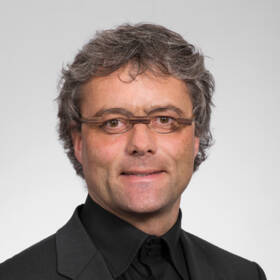Innovative cooperation in research, teaching, knowledge transfer and innovation
Background
Despite geographical, economic and cultural diversity, European regions face many common challenges due to
• Social distances (demographic change, social inclusion, migration, regional, national and European identities),
• Spatial distances (mobility in rural areas),
• Technological distances (tradition vs. innovation, digitalisation vs. crafts, disruptive technologies, digital literacy, media literacy),
• Structural distances (urban vs. rural areas, metropolises vs. small and medium-sized cities, globalisation vs. regional issues).
Engaged and Entrepreneurial European University as Driver for European Smart and Sustainable Regions
E³UDRES², the Engaged and Entrepreneurial European University as Driver for European Smart and Sustainable Regions, promotes the development of small and medium-sized cities and their rural environments into smart and sustainable European regions. It shapes a prosperous future with the best possible quality of life for self-determined people in a progressive European society.
E³UDRES develops European solutions to regional problems in a globally connected world, pooling knowledge, core competences and skills and sharing resources. E³UDRES² co-creates outstanding ideas and concepts for future universities, integrates challenge-based education, mission-oriented research, human-centred innovation as well as open and engaged knowledge exchange as interrelated core areas and establishes an exemplary multi-university campus across Europe.
I-culture: a new academic corporate culture
The "I" stands for inspiring, innovative, intercultural, international, interdisciplinary, inclusive and intense. This new academic corporate culture promotes agile management methods as important key elements of engaged and entrepreneurial universities. In order to master the necessary change processes, E³UDRES² develops and offers training towards future universities for academics and non-academic staff. It consists of the following elements:
Resonating Innovation Cycles
E³UDRES² initiates Resonating Innovation Cycles that adapt successful innovation methods to the specific needs of future universities. These maturity spirals start with small, manageable, easily calculable, prototypical tasks and actions.
I-Living Labs
These living labs provide human-centred learning, research and open innovation environments that help gain and train future skills and co-create solutions to relevant challenges. From the beginning, these labs will be available as shared modules that are offered as electives in existing curricula and will be further developed into core elements of new joint programmes for students of E³UDRES² members and other interested partners.
I-research networks
E³UDRES² establishes I-research networks as an innovative approach not only to co-ideate and co-create missionoriented research, challenge-based, human-centred innovation and open and engaged knowledge exchange, but to motivate, enable and strengthen (young) researchers to participate in European collaborations as well. The networks are based on cross-disciplinary and cross-sectoral collaboration towards relevant challenges, such as well-being and active aging, circular economy and a human-centred perspective on Artificial Intelligence (AI).
I-cubator
E³UDRES² creates an I-cubator as a specific programme for innovation and entrepreneurship to promote regionally anchored and internationally connected innovation ecosystems.
E³UDRES² consortium
The E³UDRES² consortium consists of a unique combination of scientific universities and universities of applied sciences (UAS).
All E³UDRES² members are ambitious, flexible, small or medium-sized universities, located in a small or medium-sized European city of one of the smaller European countries. They are anchored in their surrounding environments but internationally connected and active within the European Higher Education Area.
European University Initiative
Diverse social changes, climate change, rapid technological developments, and economic and social challenges require universities to transform themselves as quickly as possible so that, in addition to their core tasks in teaching, research, and innovation, they can play a central role in overcoming major social challenges. To this end, European universities are bringing together a new generation of creative Europeans who work together in different languages, across national borders and across disciplines.
The European University Initiative is part of the Erasmus+ Program, the EU programme for education, youth and sports. Its aim is to promote bottom-up university networks across the European Higher Education Area in order to strengthen the international competitiveness of European universities.
You want to know more? Feel free to ask!
- Mag. Gabriele Permoser
- Priv.-Doz. Mag. Dr. Pamela Nolz
- Dr. Alexandros Xafis MSc
- Ramona Mauthner BA
- FH-Prof. Dr. Alexandra Anderluh
- FH-Prof. Dipl.-Ing. Dr. Alois Frotschnig
- FH-Prof. Priv.-Doz. Dr. Brian Horsak
- Mag. Christina Tanzer MLS
- FH-Prof. Mag. Dr. Elisabeth Höld
- FH-Prof. Dipl.-Ing. Dipl.-Ing. Dr. Hirut Grossberger
- Mag. Irene Auffret
- Mag. Dr. Katalin Szondy
- FH-Prof. Dipl.-Ing. Dr. Kerstin Blumenstein BSc
- FH-Prof. Thomas Delissen MSc
- FH-Prof. Dipl.-Wirt.-Inf. Dr. Torsten Priebe
- FH-Prof. Dr. Ursula Hemetek MPH
- Mag. Dr. Christian F. Freisleben-Teutscher
- Instituto Politécnico de Setúbal [Portugal]
- Universtitatea Politehnica Timisoara [Romania]
- Szent Istvan University Gödöllö [Hungary]
- UCLL University of Applied Sciences Leuven-Limburg [Belgium]
- Vidzeme University of Applied Sciences [Latvia]


